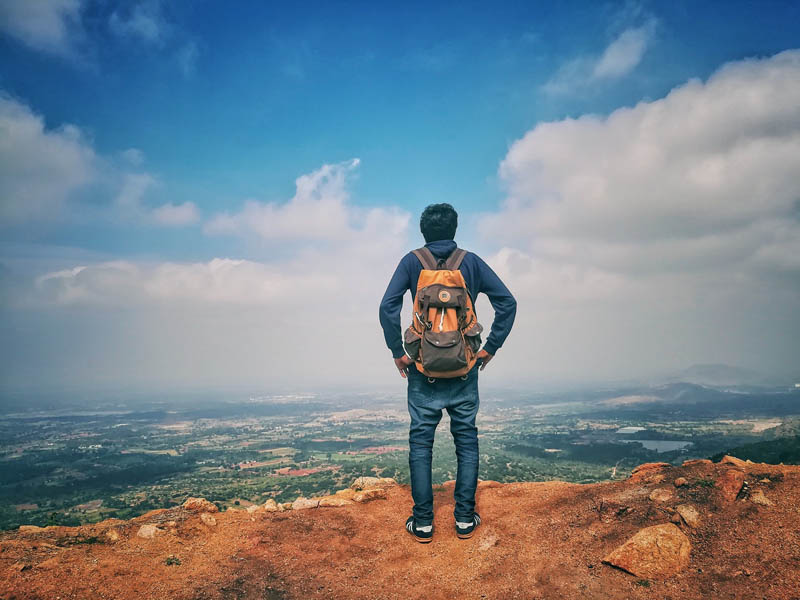
Hiking is a great way to get in some exercise and take in some beautiful scenery. But it’s not always easy to pack for a hike – especially if you don’t know what you’re doing. In this post, we’re going to give you 7 tips to packing your hiking backpack the right way so that you have the best trip possible.
Choose the Right Backpack
There are a few things to consider when choosing the right hiking backpack. The type of terrain you will be hiking, the size of your backpack, and what you need to carry.
First, decide what type of terrain you will be hiking. If you are planning on doing mostly flat trails then a traditional backpack is probably fine. However, if you are looking to venture onto more difficult or mountainous terrain then a more specialised backpack may be necessary.
Second, consider the size of your backpack. A general rule of thumb is that the larger your backpack, the more gear it can carry. However, make sure that the size of your backpack is appropriate for the type of terrain that you will be hiking. For example, if you are planning on doing an easy day hike on flat trails then a small back pack may work just fine. However, if you are looking to do an multi-day hike in some very rugged territory then a larger bag might be necessary.
Third and finally think about what items you will need while hiking such as water, snacks etc. Make sure that everything that you plan on taking with you fits comfortably into your chosen backpack.
Pack According to Your Needs
When packing for a hike, it is important to consider what you will need and what will work best for your body type. In general, most people need around 20-25 pounds of gear when hiking, but this can vary depending on the length of hike and the terrain.
Some things to keep in mind when packing your backpack are the climate you will be hiking in, whether you are carrying a lot of food or water, and how long you plan on being out each day. For example, if you are planning on spending more than a few hours in the woods each day carrying your own food and water, it is important to pack more calories and water than someone who only plans on being out for an hour or two at a time.
Another important factor to consider is your body type. Someone with a larger frame might need more space in their backpack to carry heavier items while someone with smaller frames might not require as much space. Additionally, different people have different muscle groups which can affect how much weight they can carry comfortably. It is also important to think about comfort when packing your backpack as some items (like sleeping bags) can get very hot and sweaty if worn
Pack Extra Clothing, Suitable For All Weathers
The first thing you’ll want to do when packing for a hiking trip is to decide what kind of weather you’ll be encountering. For example, if you’re planning on hiking in the summertime, make sure to pack extra clothing that can handle hot weather.
If you’re hiking in the Autumn/fall or winter, pack clothes that are appropriate for those seasons, including warm clothes and waterproofs.
Finally, make sure to bring any necessary gear, like a hat and gloves, that may be necessary for the weather conditions you’re expecting. Sunglasses are also useful if you’re hiking in the sun.
Packing an extra top or trousers can be incredibly useful if the ones you’re wearing happen to become wet or muddy should you have a fall.

Pack A First Aid Kit
When packing for a long hike, you may want to consider packing a first aid kit. This will help you if you or someone you are hiking with gets injured during your trip.
First, make sure that the kit includes all of the items that you would need in an emergency situation. If anyone in your group has medical conditions, make sure everyone is aware and that they’re carrying their medication on them. Their medication should be easily accessible so that in an emergency, a member of the group can easily access it if the person themselves is too unwell to. Everyone should also be briefed on how the medication works and is used if needed.
Second, make sure that the first aid kit is easy to access and transport. It’s no good being at the bottom of a bag under a load of different items if it’s needed in an emergency. Every second counts! Place the first aid kit in an easy-to-access compartment in yours or one of the group’s backpacks.
Finally, make sure that the kit is small enough to fit in your backpack without taking up too much space. If it’s too big, you may struggle to fit everything you need into your backpack.
If there’s any chance you’ll be hiking in the heat of the sun, then it’s also advisable to pack sunscreen. The last thing you need is to get sunburned.
Insect repellent is also a must-have in your kit!
Pack A Map or GPS Device In Case You Get Lost
If you’re planning on hiking in unfamiliar territory, it’s a good idea to pack a map or GPS device in case you get lost. This way, you’ll be able to find your way back to your car or trailhead no matter where you are.
Pack A Mobile/Cell Phone and Portable Battery Pack
One item that is often forgotten when packing for a hike is bringing a mobile phone in case of an emergency. Not only will having access to emergency services make your hike more comfortable and safe, but it can also save you time if something goes wrong along the way. Also consider packing a portable battery pack in case you run out of power while hiking. This will allow you to recharge your phone or other devices without having to stop on the trail.
We know that for a lot of people, getting away from modern society and tech is one of the draws of hiking in the great outdoors, but it’s still important to have a mobile phone/cell phone on you in case you need it.
Bring Enough Food and Drink
When packing for a hiking trip, it is important to remember to bring enough food and drink. Hiking can be a long and strenuous activity, so it is important to make sure you have enough energy to keep going.
Pack snacks, energy bars, and water bottles for when you need them. Remember to also pack a lunch if you are planning on spending the day hiking. If you are intend on camping overnight or staying in one place for more than a few hours, be sure to pack extra food and water as well.
Pack The Right Way For Your Hiking Trip
These are just a few of the things you should always consider when packing a backpack for a hiking trip.
What do you always pack in yours?

Be the first to comment